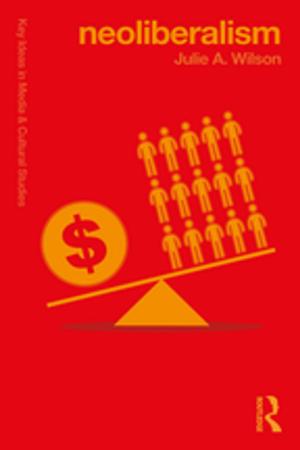Speaking With a Single Voice
The EU as an effective actor in global governance?
Nonfiction, Social & Cultural Studies, Political Science| Author: | ISBN: | 9781317509257 | |
| Publisher: | Taylor and Francis | Publication: | October 2, 2017 |
| Imprint: | Routledge | Language: | English |
| Author: | |
| ISBN: | 9781317509257 |
| Publisher: | Taylor and Francis |
| Publication: | October 2, 2017 |
| Imprint: | Routledge |
| Language: | English |
Under what conditions does the internal cohesiveness of the European Union determine its external effectiveness on the world stage? This book asks this question, investigating the frequent political assumption that the more cohesive the EU presents itself to the world, the more effective it is in achieving its goals. Contributions to this book explore this theory from a range of perspectives, from trade to foreign policy, and highlight complex patterns between internal cohesiveness and external effectiveness. These are simplified into three possible configurations: internal cohesiveness has a positive impact on external effectiveness; internal cohesiveness has no impact on external effectiveness; and internal cohesiveness has a negative impact on external effectiveness. The international context in which the EU operates, which includes the bargaining configuration and the policy arena, functions as an intervening variable that helps us to explain variation in these causal links. The book also launches a research agenda aimed at explaining these patterns more systematically and determining the marginal impact of cohesiveness on effectiveness. This book was originally published as a special issue of the Journal of European Public Policy.
Under what conditions does the internal cohesiveness of the European Union determine its external effectiveness on the world stage? This book asks this question, investigating the frequent political assumption that the more cohesive the EU presents itself to the world, the more effective it is in achieving its goals. Contributions to this book explore this theory from a range of perspectives, from trade to foreign policy, and highlight complex patterns between internal cohesiveness and external effectiveness. These are simplified into three possible configurations: internal cohesiveness has a positive impact on external effectiveness; internal cohesiveness has no impact on external effectiveness; and internal cohesiveness has a negative impact on external effectiveness. The international context in which the EU operates, which includes the bargaining configuration and the policy arena, functions as an intervening variable that helps us to explain variation in these causal links. The book also launches a research agenda aimed at explaining these patterns more systematically and determining the marginal impact of cohesiveness on effectiveness. This book was originally published as a special issue of the Journal of European Public Policy.















